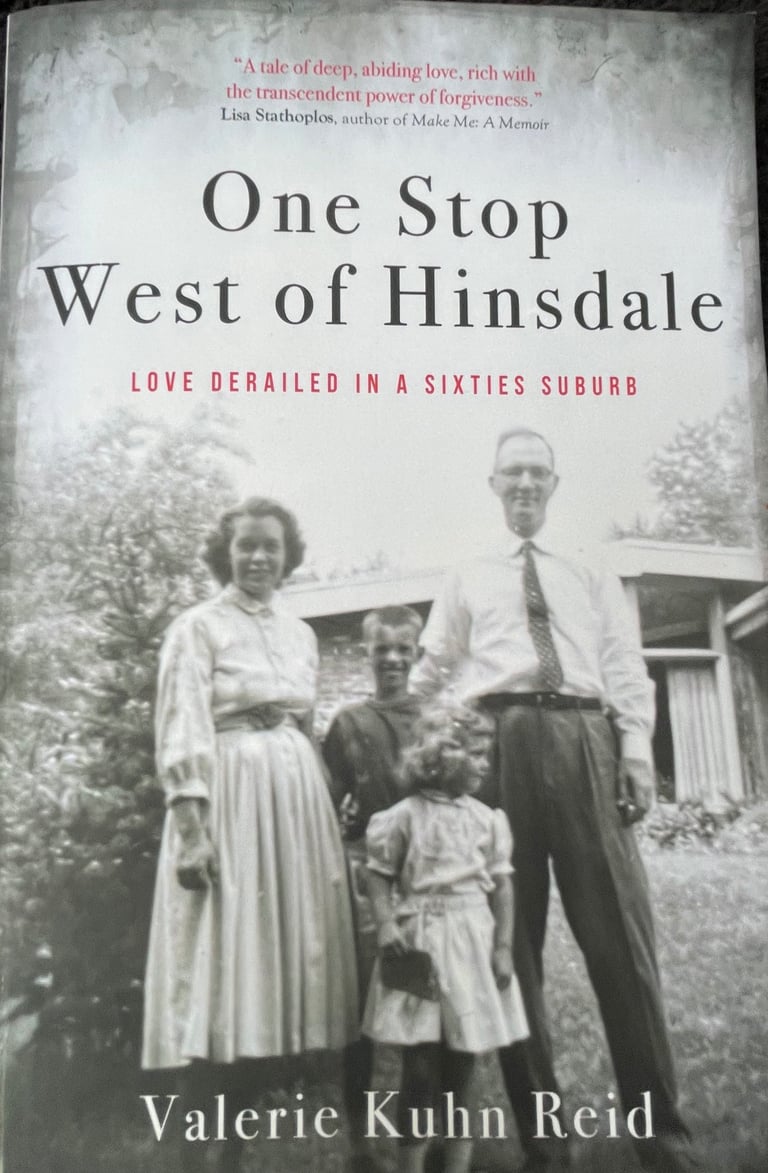“Was mom crazy like you claimed? Or did your drinking drive her mad? For fifty years I’ve wondered. Who wrecked our happy home?”
So begins one daughter’s search for truth as she turns back time and grills her beloved, but long-dead father.
The time is 1960. The place is Clarendon Hills, Illinois, the idyllic Chicago suburb just one train stop west of Hinsdale. Fairy tale families are beginning to crumble in staggering numbers and most of us still want to know why. Armed with the pure eyes of childhood and the clear eyes of age, Reid braves the past, insisting on answers.
In this intimate examination of the demise of a family, rage, adultery, mental illness, alcohol abuse, divorce, and anorexia all play roles, but don’t look for shock value or a sob story. It’s all too familiar. It might be your story, too.
The deeper themes of love and loss, loyalty and betrayal, despair and hope, understanding and redemption emerge and entwine as Reid examines the consequences of our choices—those we make and those made for us—and how we manage to live with them all.
Memoir, mystery, family saga and coming-of-age tale, One Stop West of Hinsdale is also a period piece. Reid tells her story with some flashbacks and fast-forwards, but it is mostly linear in chronology, all the better to illustrate how the turbulent sixties bled into the peaceful fifties, and how people—like it or not— do change over time: hearts harden, dreams dissolve, minds crack, love leaves. And while Reid’s tale speaks with resounding clarity to a certain generation, it will touch the hearts of all who believe that even if love does leave, what we once had is indelible.


"...at its heart, it’s a cathartic journey to a place of forgiveness; one that may ultimately inspire others to find the courage to seek their own answers."
Chris Charles
Co-writer of the #1 box office hit The Marksman